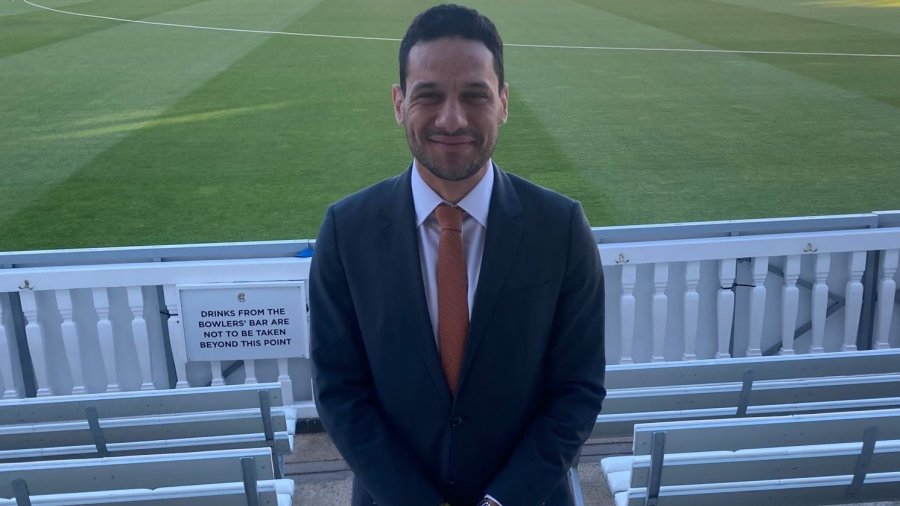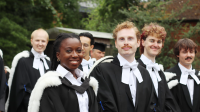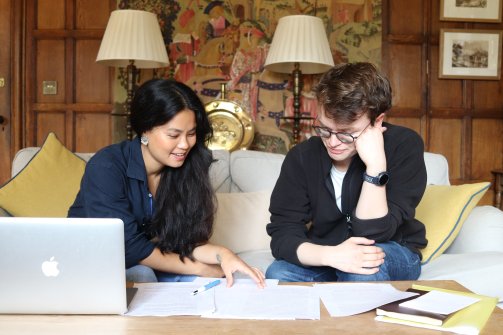The politics of time with Carolyn Smith


Our Wolfson alumni member of the month this month is Akram Shalabi (Mathematics, m.2009)

Akram started his Mathematics degree at Wolfson in 2009. Here, he tells us about his inspirations and fondest memories of Wolfson, including a triumphant experience with the Wolfson football team in the 2010 MCR Cup Final.
1) How did you come to study at Wolfson College?
I applied to Wolfson because I liked the ethos, mature and multicultural community, and the age of the college - traditionally modern.
2) What is your current occupation and how did you get into this role?
I am a Managing Associate at Grosvenor Law in Mayfair, London. I specialise in dispute resolution.
Separately, I am also the Pace Team Coordinator for London Marathon Events, where I organise the pace team for their running events, including the TCS London Marathon, and the Head of International Affairs and Development for Beirut Marathon Association.
3) What do you most enjoy about your job?
As a lawyer, I enjoy problem-solving and helping my clients achieve the best possible outcome for their legal disputes.
My involvement in the running community allows me to meet runners from all over the world and help make running more accessible to less-represented runners and communities.
4) How have your studies at Wolfson helped you in your career?
My studies and the academic challenge at Wolfson pushed me out of my comfort zone. The experience of working and living with a diverse and multicultural group of people helped me develop a more in-depth understanding of people and the world.
5) What is your fondest memory of your time at Wolfson?
Attending the Wolfson Howler and winning the 2010 MCR Cup with the Wolfson football team, where I scored two goals in the final. Seeing our team picture in the common room is a highlight whenever I visit the college.
6) What is the best piece of advice you've ever been given?
Just go out and be imperfect, laugh every time you fall. Be you, bravely.
7) Which book has had the greatest impact on you?
Talking to strangers by Malcolm Gladwell. The book explains assumptions and mistakes we make when dealing with people we don’t know and encourages the reader to examine their own behaviour and thought processes.

Dive into the Cambridge innovation ecosystem with a visit to the Cambridge Science Park.

This event is the third of three roundtables that Wolfson's REACH Research Hub will be organising over the academic year under the heading ‘Hierarchies of Racism?’

Join Emeritus Fellow Dr Brian D Cox for a talk which will outline the development of the University from its origins in 1209 until the present day.

Graduation ceremonies are the culmination of students’ hard work and commitment, and a moment to celebrate the completion of their Cambridge degree.

A display of works from the Bradshaw-Bubier studio pottery collection.







